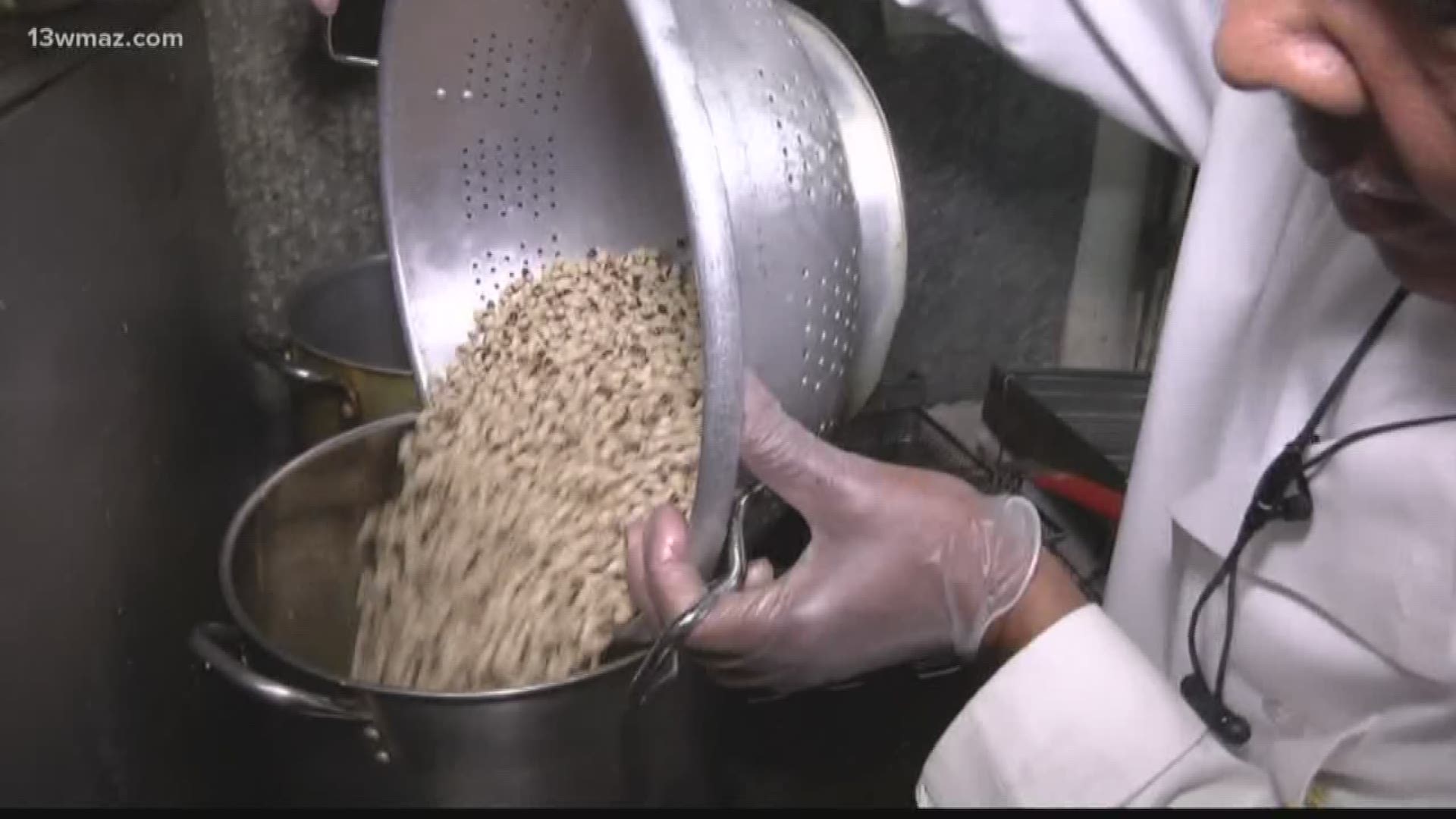As we start the new year, some food traditions come into play all across the south.
Through our partnership with Mercer University’s Center for Collaborative Journalism, Amyre Makupson takes a closer look at one tradition with roots that date back over a century.
Collard greens and black-eyed peas -- many of us grew up eating the combo on January 1, hoping it would bring us money and luck in the new year.
But where does that notion, and even that food combination, really come from? The answer, deeply rooted in Southern history, just may surprise you.
"My pots are here. This is for the peas and these are for the collards. I’ve already prepared my spices and everything in there," said Richard Lockett.
Lockett has been cooking for a long time as the head chef at MeMaw’s in Macon, so he knows a thing or two about soul food and southern food traditions.
“Well, it’s an old slave tradition, that’s what it is," he said.
Dr. David Davis is a Mercer University English Professor and food historian.
“I think when we’re eating peas and greens on New Year's Day, we’re actually doing something that is fundamentally southern, but we’re perpetuating a practice that is ultimately embedded in the culture of slavery," he said.
The food ties to the time period are well documented .
“Collard greens are a food that is persistent in the winter months, so it was very common to have collards still growing fresh as late as December to January. And cow peas are available because they can be dried and preserved throughout the course of the year," said Davis.
So why specifically on New Year's Day?
Davis says that history shows that slaves were given less responsibilities between Christmas and the new year, giving them reason to conclude this time period with a large meal, but there’s also another theory.
“I think this is the more compelling reason... is that January 1, for many families existing under slavery, [it] would be the last time they would be together as a family," said Davis.
That’s because, Davis says, many slaves were rented out to work at other plantations for a year. So how do these notions then evolve into superstitions?
“Well the old, old slogan is that the greens were for money, you cook the greens for money. For the peas, the peas are for pennies and it takes pennies to make dollars so this is all I heard coming up," said Lockett.
“It comes handed down as a tradition passed in oral tradition from family to family and it get detached from the culture of slavery where some historian and food scholars thinks it originates,” said Davis.
And from there, the tradition spreads across cultures from past centuries to today.
“For more white families through to the late 20th century, African-Americans would be performing the essential food labor and so this transmits from African-American families to white families and it makes even more sense as it transmits from African-American to white families that the connection to slavery becomes downplayed and eventually lost," said Davis.
Davis emphasizes that a lot of history surrounding collards and peas in the new year is just speculation because not much was documented about food culture when these traditions started.
That being said, for whatever reason you and your family may eat the duo on New Year's Day, here’s hoping that the new year brings you good luck and good fortune.

